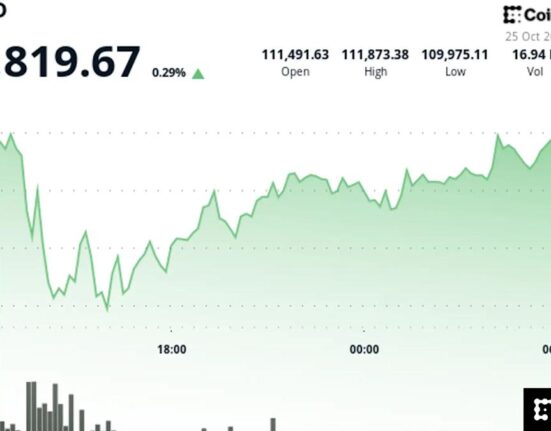Welcome back to our Sunday edition, where we round up some of our top stories and take you inside our newsroom. It’s gotta be the shoes! Why else would people be willing to drop at least $1,100 on a pair of sneakers? I’d never shell out that much but I am tempted to go try on Wall Street’s favorite pair of kicks.
On the agenda today:
But first: Are you leaving the money on the table?
If this was forwarded to you, sign up here. Download Business Insider’s app here.
Imagine you work for a company and your stock price has just skyrocketed. Think Nvidia, up more than 1,100% over the past few years to become a $4.5 trillion company. Or Broadcom and AMD, two other chipmakers whose shares are surging in the AI boom.
Employees of these companies must be feeling pretty good right about now. What could possibly go wrong?
As is often the case, though, there is a catch. In this instance, it’s known as “golden handcuffs” — the notion of feeling stuck because it’s too risky or expensive to move or change.
These compensation packages often include restricted stock units, or RSUs. Those who decide to leave their companies could forfeit any unvested stock, meaning they could miss out on a substantial form of compensation — potentially worth millions of dollars.
My colleagues Geoff Weiss, Hugh Langley, and Rosalie Chan wrote this weekend about the latest golden handcuff trend sweeping through Silicon Valley, particularly at the AI chip companies.
In one case, they reported that an equity package of $420,000 given to an Nvidia employee in 2023 is worth almost $2 million today, citing data from Levels.fyi. Even a more modest $66,000 RSU package reported by a Broadcom employee in 2023 has jumped in value to around $267,000.
Stock payouts unlock over time. Quitting before shares vest can potentially mean leaving a substantial amount of money on the table.
Although, it’s worth noting that if you quit or lose your job, those unvested RSUs disappear.
Companies use restricted stock as a retention tactic. It’s one that has been utilized from Wall Street to Big Tech, with a similar dynamic now occurring in the AI boom.
Welcome back to our Sunday edition, where we round up some of our top stories and take you inside our newsroom. It’s gotta be the shoes! Why else would people be willing to drop at least $1,100 on a pair of sneakers? I’d never shell out that much but I am tempted to go try on Wall Street’s favorite pair of kicks.
On the agenda today:
But first: Are you leaving the money on the table?
If this was forwarded to you, sign up here. Download Business Insider’s app here.
Imagine you work for a company and your stock price has just skyrocketed. Think Nvidia, up more than 1,100% over the past few years to become a $4.5 trillion company. Or Broadcom and AMD, two other chipmakers whose shares are surging in the AI boom.
Employees of these companies must be feeling pretty good right about now. What could possibly go wrong?
As is often the case, though, there is a catch. In this instance, it’s known as “golden handcuffs” — the notion of feeling stuck because it’s too risky or expensive to move or change.
These compensation packages often include restricted stock units, or RSUs. Those who decide to leave their companies could forfeit any unvested stock, meaning they could miss out on a substantial form of compensation — potentially worth millions of dollars.
My colleagues Geoff Weiss, Hugh Langley, and Rosalie Chan wrote this weekend about the latest golden handcuff trend sweeping through Silicon Valley, particularly at the AI chip companies.
In one case, they reported that an equity package of $420,000 given to an Nvidia employee in 2023 is worth almost $2 million today, citing data from Levels.fyi. Even a more modest $66,000 RSU package reported by a Broadcom employee in 2023 has jumped in value to around $267,000.
Stock payouts unlock over time. Quitting before shares vest can potentially mean leaving a substantial amount of money on the table.
Although, it’s worth noting that if you quit or lose your job, those unvested RSUs disappear.
Companies use restricted stock as a retention tactic. It’s one that has been utilized from Wall Street to Big Tech, with a similar dynamic now occurring in the AI boom.












Leave feedback about this